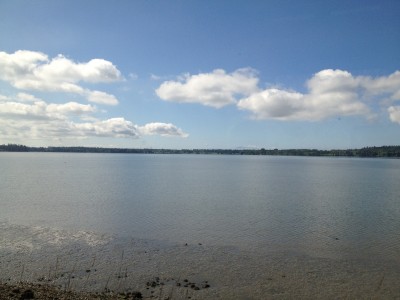Most of us know a bit about cumulation. It is the building up of something that gives it more strength or volume that if it had been left alone or ignored. Laundry, if left undone for a month, is no longer a simple load. Weeding the garden once a year is, well, likely to be a garden of weeds rather than vegetables in my area.
I’ve been in many environments in which there appears to be a cumulative blame. It hasn’t been easy to put my finger on it, but I recently got a new insight to understand this. It’s not regular blame for one instance or another. It’s not isolated blame. It’s cumulative in that the pile of “perceived wrongs” is so high that blame becomes the operating system. It’s harsh, right. And needs interruption.
This is one of the reasons that I like Appreciative Inquiry as a methodology and way of being. Appreciative Inquiry is one of the best ways I know to breakthrough the harshness that is blame. When shaped with the right question, it can move that operating system from blame to learning. That’s the essential interruption that helps a group reclaim what it is all about. I use questions like, “What are you learning about what is difficult here?” “What are you learning about yourself in this challenging time?”
Brene Brown, though I don’t know her personally, has been a kind of teacher for me about blame. In one of her talks she tells a great story that concludes, “Blame is simply discharge of discomfort and pain.”
And there is a lot of pain in many systems today, isn’t there. Pain of complexity. Pain of being overworked. Pain of shortage of funding. Pain of management systems that command and control. Pain of needing to disassociate work from life. Pain of feeling you shouldn’t take a day off, even though you are sick. Pain of larger systems in collapse. That can be a big list.
I’ve written before about not blaming each other for complexity. That kind of not blaming, that not contributing to a cumulative blame, requires discipline. I continue to learn about this.
Another teacher and friend, Margaret Wheatley once shared three things about being in complexity that have remained with me. First, stay awake. Second, dwell in complexity. Third, pay exquisite attention to relationships. Again, nothing about blame there. Just staying awake and in relationship. Even to discomfort. So that weeding the garden, which does need to happen, is twenty minutes here and there rather than a whole weekend.

